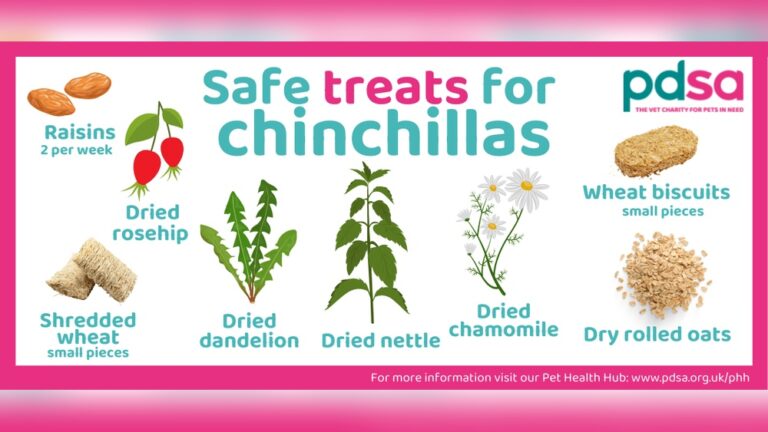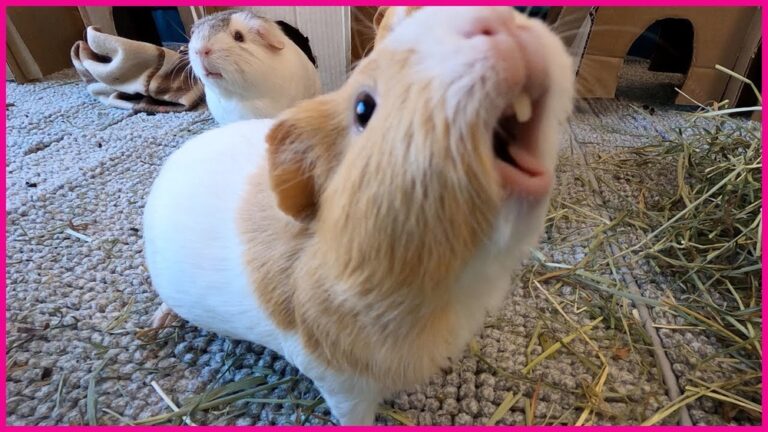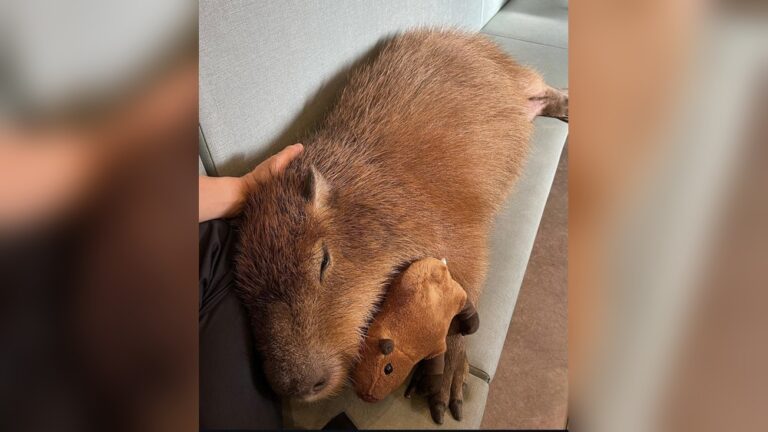Taking Care Of Baby Guinea Pigs: Essential Tips for Happy Pets
If you have a baby guinea pig or are thinking about getting one, you want to give it the best care possible. These tiny pets may be small, but they need special attention to stay healthy and happy.
You might wonder what exactly your little friend needs every day. This guide will help you understand how to take care of your baby guinea pig with simple, easy steps. Keep reading to discover tips that will make your pet feel loved and safe from the very start.
Choosing The Right Cage
Choosing the right cage is the first step to caring for baby guinea pigs. The cage needs to be safe, comfortable, and roomy enough for your pet to move freely. A proper cage helps keep your guinea pigs healthy and happy. It also makes cleaning easier for you.
Size And Space Requirements
Baby guinea pigs need plenty of space to play and explore. A small cage can make them feel cramped and stressed. The minimum cage size should be at least 7.5 square feet for two guinea pigs. More space is better if you have more pets. A larger cage allows room for toys, hiding spots, and exercise.
Safe Bedding Options
Choose bedding that is soft and absorbent. Avoid cedar or pine shavings because they can cause breathing problems. Paper-based bedding is a safe and clean choice. Make sure to change the bedding often to keep the cage dry and odor-free. Soft bedding keeps baby guinea pigs warm and cozy.
Cage Placement Tips
Place the cage in a quiet, draft-free area. Avoid direct sunlight to prevent overheating. Keep the cage away from loud noises and strong smells. A calm spot helps baby guinea pigs feel secure and relaxed. Make sure the cage is easy for you to access for feeding and cleaning.
Proper Nutrition
Proper nutrition is key to keeping baby guinea pigs healthy and happy. Their tiny bodies need the right foods to grow strong. Feeding them well helps prevent illness and supports energy for play and exploration.
Choosing the best diet is simple with the right knowledge. Guinea pigs need foods rich in vitamin C. Their bodies cannot make this vitamin, so food must supply it daily. Balanced meals keep their immune systems strong and their teeth healthy.
Balanced Diet Essentials
Baby guinea pigs need hay as their main food. Timothy hay or orchard grass works best. Fresh hay helps digestion and wears down teeth naturally. Pellets made for guinea pigs provide extra nutrients. Choose pellets with added vitamin C. Avoid mixes with seeds or nuts. These can harm their health.
Fresh Vegetables And Fruits
Offer fresh vegetables every day. Leafy greens like romaine lettuce, kale, and cilantro are great choices. Small amounts of fruits such as apple slices or strawberries are treats. Fruits must be given sparingly to avoid stomach upset. Wash all produce well before feeding. Fresh food adds water and vitamins to their diet.
Avoiding Harmful Foods
Some foods can hurt baby guinea pigs. Avoid onions, garlic, and potatoes. These cause serious health problems. Do not feed chocolate, candy, or dairy products. Guinea pigs cannot digest these properly. Also, avoid iceberg lettuce. It has little nutrition and can cause diarrhea. Always research before trying new foods.
Daily Care Routine
Taking care of baby guinea pigs requires a simple daily routine. This routine helps keep them healthy and happy. Small animals need regular attention and care. Spending time each day with your baby guinea pig builds trust and keeps problems away.
The daily care routine includes feeding, cleaning, and watching their health closely. These tasks are easy but very important. Let’s explore each part of the routine in detail.
Feeding Schedule
Feed baby guinea pigs twice a day, morning and evening. Provide fresh hay, which is their main food. Add small amounts of fresh vegetables like carrots or cucumbers. Always give clean water in a bottle. Avoid sugary or fatty treats. Keep food dishes clean and dry.
Cleaning The Cage
Remove soiled bedding every day. Spot clean urine and droppings. Change the full bedding once a week. Use soft paper or hay for bedding. Clean the cage with mild soap and water. Rinse well to remove soap traces. A clean cage prevents smell and illness.
Monitoring Health
Check your baby guinea pig daily for signs of illness. Look for clear eyes and clean fur. Watch for changes in eating or activity. Notice if they cough or sneeze. Gently feel their body for lumps or injuries. Early detection helps keep them healthy.
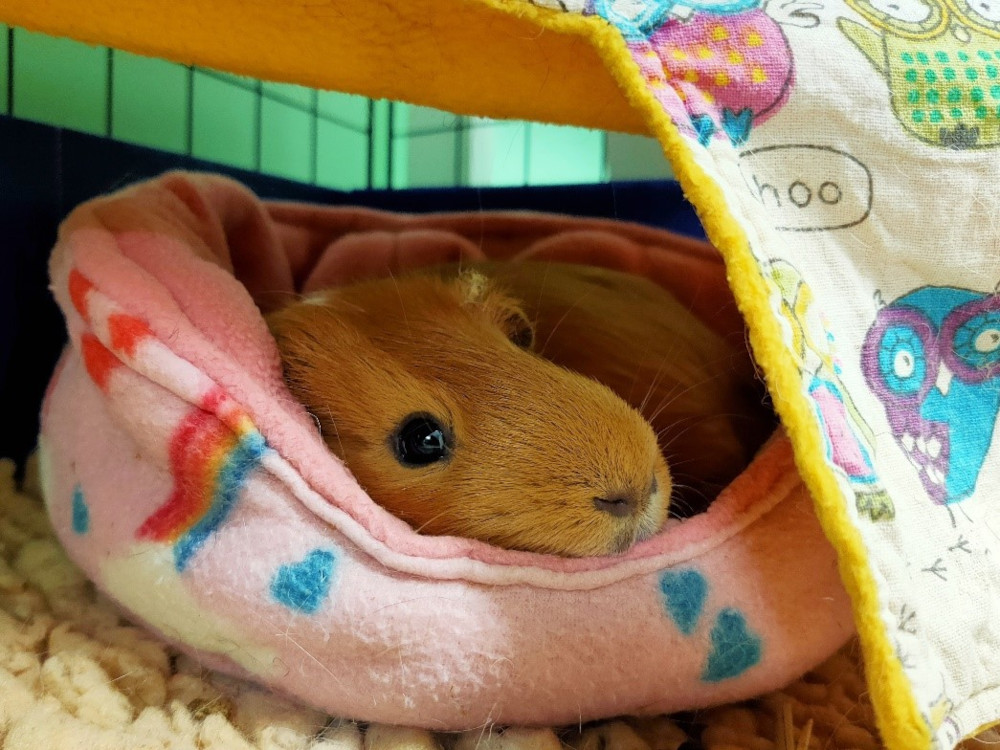
Credit: www.mibu.lt
Handling And Socializing
Handling and socializing baby guinea pigs helps them grow friendly and calm. Proper care builds trust and makes them feel safe. Starting early makes pets more comfortable around people.
Patience and gentle touch are key. Each guinea pig has its own pace for trust. Knowing how to handle and socialize your pet creates a happy bond.
Gentle Handling Techniques
Support your guinea pig’s body with both hands. Hold them close to your chest to feel safe. Avoid sudden movements that may scare them. Speak softly to keep them calm. Handle them for short times at first. Gradually increase handling time as they get used to you.
Encouraging Interaction
Offer treats by hand to invite your guinea pig near. Let them explore your lap or hands at their own speed. Play gentle games like hiding treats in bedding. Spend quiet time sitting near them to build trust. Repeat these steps daily to create a strong bond.
Recognizing Stress Signs
Watch for teeth chattering, freezing, or hiding often. These signs show your guinea pig feels scared or stressed. If stressed, stop handling and give space. Try again later with softer touch and calm voice. Knowing these signs helps protect your pet’s well-being.
Health And Wellness
Taking care of baby guinea pigs means paying close attention to their health and wellness. Healthy guinea pigs live longer and are happier. Early care helps prevent many problems. Knowing what to watch for and how to keep them safe is key. This guide covers the basics of health care for your little pet.
Common Illnesses To Watch For
Baby guinea pigs can get sick from infections or poor diet. Watch for signs like sneezing, coughing, or runny eyes. Check for swelling or lumps on their body. Diarrhea or loss of appetite needs quick attention. Skin problems like hair loss or itching may show parasites. Early detection can save your pet’s life.
Regular Vet Visits
Take your baby guinea pig to the vet regularly. Vets can spot health issues before they get worse. Plan visits every six months or as the vet suggests. Keep your pet’s weight and teeth checked. Vaccinations and parasite control may be needed. Regular checkups keep your guinea pig strong and safe.
Preventative Care Tips
Give fresh water and a balanced diet daily. Clean the cage often to avoid germs and bugs. Use safe bedding to keep your guinea pig comfortable. Provide chew toys to help teeth stay healthy. Keep your pet warm but not too hot. Avoid sudden changes in their environment or diet. Simple steps stop many health problems before they start.

Credit: kavee.com
Enrichment And Play
Baby guinea pigs need play and enrichment to stay happy and healthy. Play helps them learn and grow strong. It also keeps their minds active and stops boredom. Enrichment makes their daily life fun and exciting.
Toys And Accessories
Provide safe toys like chew sticks and tunnels. Guinea pigs love to nibble and explore new objects. Soft balls and hideouts are perfect for small pets. Change toys regularly to keep their interest high. Avoid plastic toys that can break and hurt them.
Exercise Opportunities
Give your baby guinea pig space to run and jump. A playpen or a safe room works well. Let them explore different surfaces like grass or carpet. Supervise playtime to keep them safe from harm. Exercise helps their muscles and prevents weight gain.
Creating A Stimulating Environment
Arrange their cage with different levels and hiding spots. Add tunnels, ramps, and cozy bedding. Use fresh hay and treats to encourage foraging. Keep the environment clean and change items often. A lively space makes your guinea pig curious and joyful.
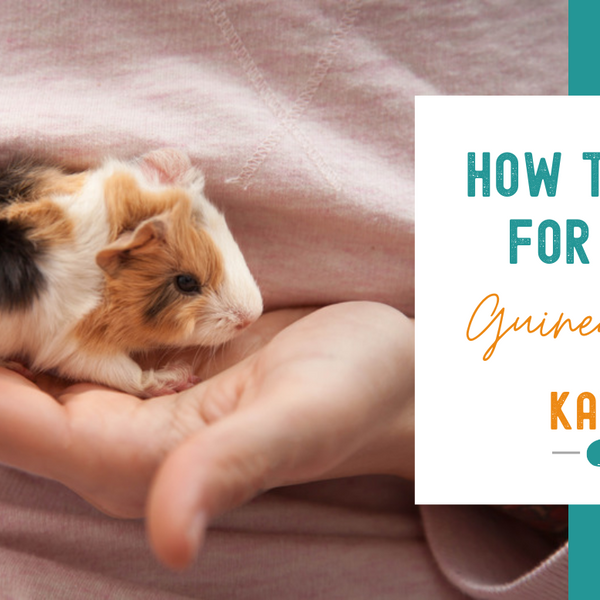
Credit: uk.kavee.com
How Smart Pets Lover Can Help You with Taking Care Of Baby Guinea Pigs
Learning Through Loving Care
Taking care of baby guinea pigs offers a wonderful opportunity to deepen your understanding of their unique needs while building a meaningful bond. As you focus on daily care routines and proper nutrition, you’ll notice how these small habits foster trust and wellbeing. Observing their behavior during handling and socializing moments can teach you a lot about their personalities and preferences, enriching your connection.
At Smart Pets Lover, we believe that every wag, purr, and chirp tells a story—your guinea pig’s included. Embracing their health and wellness needs encourages you to become a more attentive and confident pet parent. If you ever have questions or want to learn more about guinea pig care, trusted resources and communities are just a message away, ready to support your journey.
Remember, caring for these gentle companions is not just about routine but about creating joyful moments that last a lifetime.
Frequently Asked Questions
How Do I Care For A Baby Guinea Pig Daily?
Daily care includes feeding fresh hay, vegetables, and clean water. Clean their cage regularly. Handle gently to build trust. Monitor health and behavior to spot issues early. Provide a warm, safe environment for comfort.
What Is The Best Diet For Baby Guinea Pigs?
Baby guinea pigs need hay, fresh veggies, and vitamin C-rich pellets. Avoid sugary or fatty foods. Fresh water is essential daily. Balanced nutrition supports growth and health. Introduce new foods gradually to prevent digestion issues.
How Often Should I Clean A Baby Guinea Pig’s Cage?
Clean the cage at least twice a week. Remove soiled bedding and replace with fresh material. Spot-clean daily to maintain hygiene. A clean cage prevents odors and illnesses. Use safe, non-toxic cleaning products.
When Can Baby Guinea Pigs Eat Solid Food?
Baby guinea pigs start nibbling solid food within a week. Gradually introduce hay, pellets, and veggies alongside mother’s milk. By three weeks, they can eat most solid foods. Ensure fresh water is always available.
Conclusion
Caring for baby guinea pigs takes time and patience. They need clean homes, fresh food, and gentle handling. Watch them closely to keep them healthy and happy. Small steps each day build a strong bond. Enjoy the quiet moments and simple joys they bring.
Your care makes a big difference in their little lives. Keep learning and stay consistent. Baby guinea pigs grow fast and need your love. This care helps them thrive and be your loyal friends.



